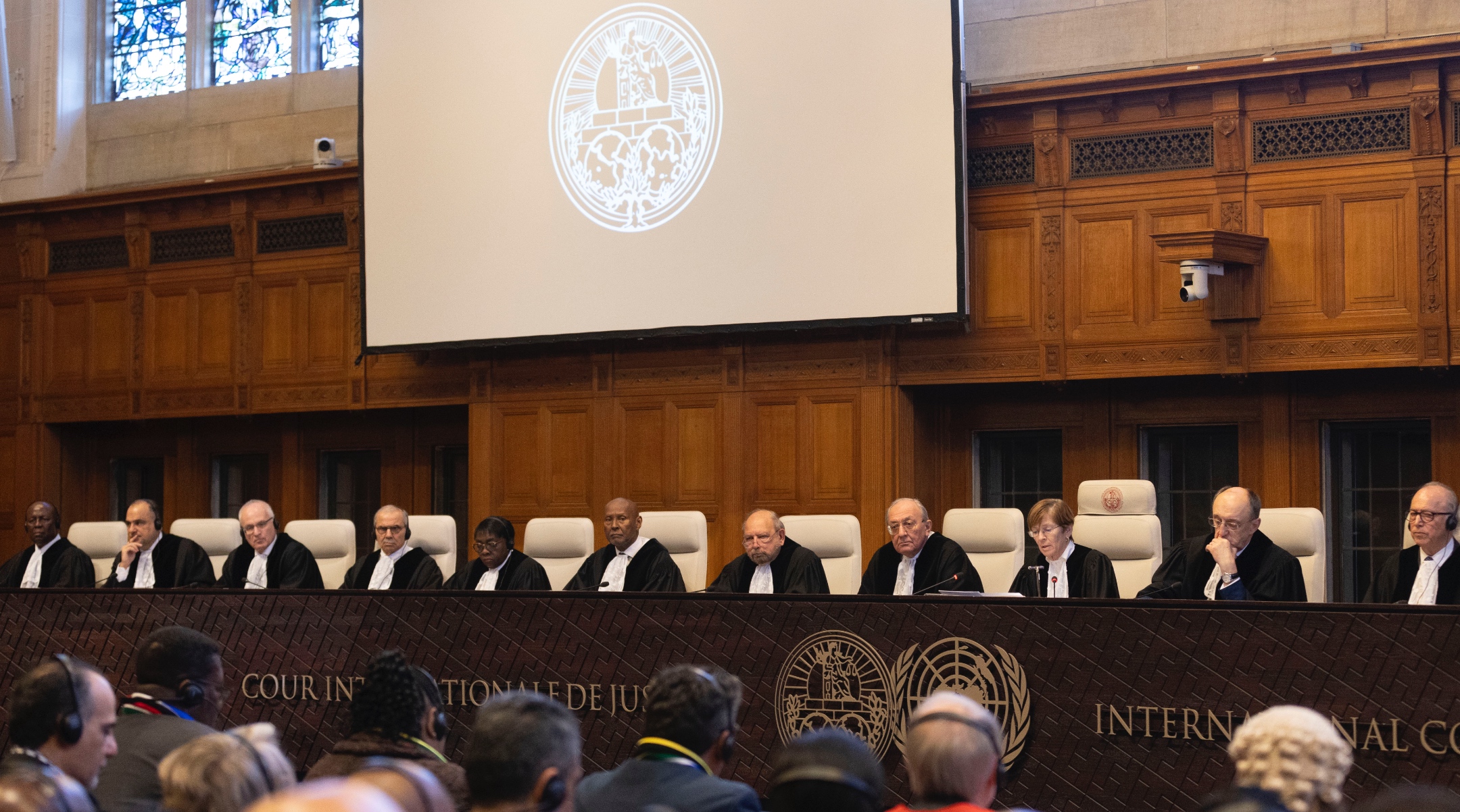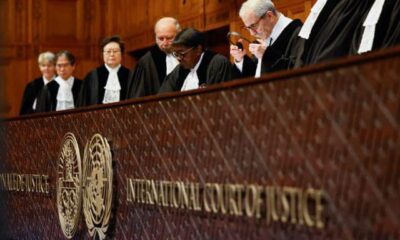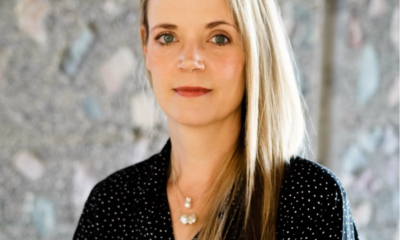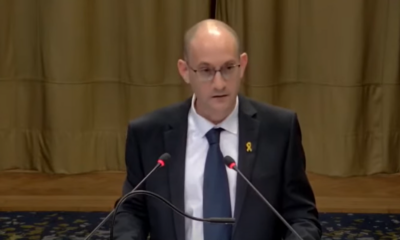
News

SA doubles down against Israel over Rafah offensive
South Africa has once again designated itself world leader in targeting Israel, this time by making an urgent request to the International Court of Justice (ICJ) regarding a possible Israeli offensive in Rafah.
Displaying a sense of urgency not seen in any other arena of governance, Presidential Spokesperson Vincent Magwenya said on 13 February, “In a request submitted to the court, the South African government said it was gravely concerned that the unprecedented military offensive against Rafah … would be in serious and irreparable breach both of the Genocide Convention and of the court’s order of 26 January 2024. South Africa trusts this matter will receive the necessary urgency.”
However, analysts say that there are many other factors at play in this latest request to the ICJ. “It’s [out of] genuine concern for Palestinians, but it’s also like a poker player doubling down, pushing the victory it thinks it won at the ICJ last time,” says local political analyst Steven Gruzd.
“It may be a ploy to win votes. I predict that the emboldened South African government is going to continue going after Israel through lawfare, buoyed by the last result at the ICJ. I don’t see South Africa letting up the pressure any time soon, particularly as the war drags on and if Rafah is invaded.”
“It’s unclear whether South Africa intends to bring a parallel complaint against Israel and one that’s similar in nature to the one that it brought on 29 December, or whether this is an interrelated complaint,” says advocate Mark Oppenheimer. “I assume that South Africa is going to claim it has a right to do this because the Genocide Convention entitles all parties to lay claims of genocide.
“It appears that South Africa claims that the Genocide Convention is being breached, which would be a self-standing claim, but also that the court’s order, requiring Israel to abide by the Genocide Convention, is being breached.
“The South African government has on a number of occasions claimed that the order granted by the ICJ on 26 January was tantamount to a ceasefire,” he says. “Now, if it really were tantamount to a ceasefire, then Israel’s actions in Rafah would be a breach of the court order. Of course, if one studies the judgment carefully, it’s quite clear that the court explicitly refused to grant a ceasefire and that Israel is entitled to engage in its war against Hamas provided that it does so within the parameters of the Genocide Convention. So, this will be an interesting test of the South African view as to what the court’s order means.
“Israel was able to rescue two hostages [in Rafah], and in the region of 67 people were killed,” says Oppenheimer. “It’s unknown how many of those were Hamas militants and how many were civilians. But it would appear that there’s a legitimate military reason for being in Rafah, which is to rescue hostages.
“There may be some question as to whether the action taken was proportionate, but that’s not a question for the ICJ to deal with,” he says. “That’s a question around the laws of war, not around a breach of the Genocide Convention. So, time will tell what the court’s view is on South Africa’s application.”
Professor Glen Segell, research fellow at the Ezri Center for Iran and & Gulf States Research, says South Africa’s latest move includes several factors. “Some in South Africa cannot step back from what they have started against Israel. Some really believe that they are correct, and the legal path against Israel is the most civilised means of expressing it. Then, there are rumours of money involved, going to the African National Congress [ANC] in return for legal actions. Finally, there are some who truly identify with and support anti-Zionism and antisemitism at all costs.”
Dr Frans Cronje of the Social Research Foundation says, “The view of the government is that their policy is informed by a deep and abiding commitment to global human rights. An alternative view is that it’s informed by very much narrower interests, given that South Africa’s foreign policy track record reveals neither a deep nor abiding commitment to global human rights.”
Sara Gon, the head of strategic engagement at Institute of Race Relations, says, “We have just had a disastrously disingenuous State of the Nation Address [SONA]. The ANC’s only ‘accomplishment’ at present is the ICJ decision, giving the ANC pretty much everything it asked for except a ceasefire. So, the ANC is essentially pleading with the ICJ to order a ceasefire. I think it’s a political ploy which plays well to the gallery.
“If warfare cannot be conducted if it will harm civilians, the ICJ may make the same shallow finding it made originally,” says Gon. “However, I think that ordering Israel to abandon an offensive in the circumstances, which includes Gazans moving to a safe place which the Israel Defense Forces [IDF] will protect, is a step too far. It may just reiterate its earlier instructions to Israel to ensure that no genocide takes place. Anything more would be a stretch, even for the ICJ.”
Local political analyst Daniel Silke says, “If South Africa has taken the matter to the ICJ up until now, it’s going to continue the pressure. South Africa also wants to keep this issue alive, which gains the ANC some level of support. It benefits the ANC because there are no domestic successes in spite of what the president said at SONA. Ultimately, this is the one issue that can resonate, although in the end, most voters aren’t going to be influenced by foreign policy. Given South Africa’s close relations with the Palestinians and Iran, in the ANC’s view, the pressure needs to be kept up.”
“Once again, the actions of the South African government seem designed more to play into the hands of Hamas than find peace,” says South African Jewish Board of Deputies National Chairperson Professor Karen Milner. “The ANC government is unbothered by Hamas ignoring the ICJ ruling to release the hostages. It appears that a possible ceasefire deal is on the table, but South Africa isn’t part of this as it continues to shout from the sidelines.”
South African Zionist Federation spokesperson Rolene Marks says, “The ANC government continues to wilfully misinterpret the ICJ ruling, which rejected its demand for a ceasefire. It’s doing so to protect its ally, Hamas, which is the proxy of Iran. The IDF has destroyed 18 Hamas battalions based in Gaza, however four Hamas battalions remain in Rafah. Intense activity that is to follow in Rafah requires civilians to evacuate areas of combat. Therefore, the Israeli government has ordered the IDF and the security establishment to submit a combined plan. Israel plans to set up 15 areas with 25 000 tents and medical personnel south of Al Mawasi.
“On Monday, two hostages held in Rafah were rescued by Israeli forces, which underscores the need to enter this area,” she says. “The war can end immediately if Hamas surrenders and returns the hostages.”
Marks adds: “South Africa has still not used its influence to call for the release of hostages, as stated by the ICJ ruling.”
Judge Dennis Davis says one concern is that the matter may now be escalated to the United Nations Security Council, and this may lead to a resolution against Israel. However, he says that if a peace plan comes to fruition, the ICJ’s orders would essentially fall away.
“Who knows what results South Africa’s request will have?” says Oppenheimer. “The court might explicitly state that Israel has a right to do what it’s doing. In which case, it might very well embolden Israel. It’s unclear what tactics South Africa will engage in in the future.”











Sydney Kalayamodimo
February 15, 2024 at 12:42 pm
The anc is downright pathetic. It is only going to get an egg on its face. The IDF is unstoppable on its goal to destroy hamas completely!!!